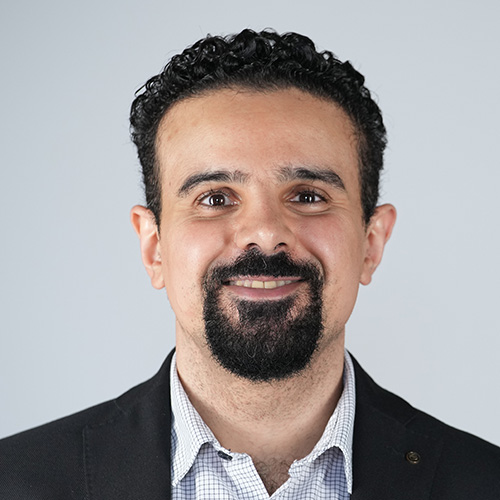Key details
Dr Ahmed Farhat
Lecturer in Computer Science
Dr Farhat’s academic journey began with an interest in communication and electronics, leading him to pursue a double major undergraduate degree. He graduated at the pinnacle of his class, and this academic excellence was recognised through gaining a scholarship opportunity to pursue his master's degree in Embedded Systems at the University of Greenwich. After completing his master's studies, he worked as a lecturing assistant in Egypt for two years. After that, he seized another scholarship opportunity to pursue a PhD in Computer Engineering at the University of Greenwich.
The PhD work represented proof of concept, integrating optical physical properties as fundamental components of larger system architectures like convolutional neural networks (CNN). His research aimed to replace three main phases of CNN - data preparation, data correlation, and decision-making - with optical processes.
Responsibilities within the university
Module leader
- Wireless and Mobile Technologies
Module contribution
- Computer and Communication Systems
- Principles of Software Engineering
- Penetration Testing
Research / Scholarly interests
The main motivation behind Dr Farhat's PhD research initiated from the recognition that most existing implementation methods were tailored specifically for digital systems reliant on arithmetic and logic operations. However, processes vital for object detection, such as convolution and Fourier transform, often prove inefficient on traditional hardware due to their complexity. Furthermore, the lack of semantic meaning in digital representations hinders the differentiation between data parts, posing challenges for AI and ML applications, particularly during training, demanding additional resources.
To address these challenges, an analogue optical hardware system is designed to replace digital processing for complex mathematical operations essential in training machine learning models, notably Fourier transform, convolution, and matrix multiplications. This innovative research resulted in the development of an optical hardware system optimised for pattern recognition and similarity detection through optical cross-correlation.
Recent publications
Ahmed Farhat, W. J. M. R. J. D. W., 2019. Optical Cross Correlation for Similarity Detection. Cambridge, COMSOL Conference.
